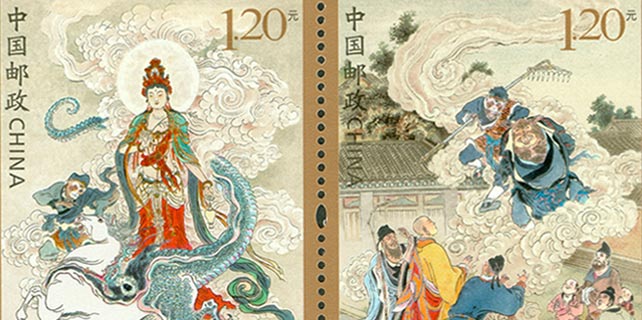Beijing calls on US to review trade by book
China on Saturday urged the US side to carry out a trade review targeting China and other surplus countries in accordance with international rules.
China's Ministry of Commerce (MOC) made the statement after US President Donald Trump signed executive orders on Friday focused on reducing the trade deficit, Xinhua reported.
The reality, cause and possible impact for the US trade deficit with China are well understood by both countries, the MOC said. It highlighted that Sino-US trade was highly complementary and had mutual benefits.
As the world's top two economies, China and the United States have a special mission in promoting global trade and investment, as well as global economic prosperity, it said.
China is willing to work alongside the United States to enhance dialogue and properly address disagreements on the basis of mutual benefits and cooperation, it added.
US economists and the business community voiced concerns over two executive orders on trade signed by President Donald Trump on Friday.
One of the orders requires the US commerce secretary and US trade representative to prepare a report within 90 days to assess the practices of US trading partners that contributed to the $500 billion trade deficit the US incurred in 2016 on a country-by-country and product-by-product basis.
The second order calls for stricter and more effective enforcement of US anti-dumping duties.
US Commerce Secretary Wilbur Ross said the report will form the basis for further actions to tackle bilateral trade imbalances.
The US-China Business Council, a Washington-based organization which represents US companies doing business in China, said on Friday that it welcomes the executive order on studying the trade deficit.
"Examining why the United States has a trade deficit and its overall impact on the US economy and employment in a fact-based manner would be a useful exercise," USCBC Senior Vice-president Erin Ennis said in the statement.
"We encourage the administration to ensure the study is balanced and takes into account the complexity of the United States' economy. The trade deficit alone is not a metric of the health of the US economy," Ennis added.
The statement noted that on a value-added basis - which better measures true trade flows, the US trade deficit with China is cut in half and is about the same as the US trade balance with Europe.
Many economists have used the example of Apple's iPhone. While each phone is counted for some $600 in China's trade surplus with the US, only $10-15 is retained by China while the rests are components from Japan, South Korea, the US and other places.
Many US economists believe Trump is wrong-headed in approaching trade deficits.
Caroline Freund, a senior fellow at the Peterson Institute for International Economics, said on Friday that bilateral trade deficits don't really matter, and trade deficits have more to do with fiscal policy rather than trade policy.
She expressed her concern about the way the Trump administration is looking into the trade deficit, country-by-country and product-by-product.
"That is the wrong approach because a trade deficit is not about those things, and that's not really a good way to go about looking it," said Freund, who previously worked as an economist, senior economist and chief economist respectively with the Federal Reserve Board, the International Monetary Fund and the World Bank.
Other US economists, such as Stephen Roach, a former chief economist at the Morgan Stanley, have long argued that the US trade deficits are largely due to the low saving rate among Americans and their living-beyond-their-means lifestyle.
"If you have the wrong diagnosis, you have the wrong policy prescription," Yukon Huang, a senior fellow at the Carnegie Endowment for International Peace and a former World Bank official, told China Daily on Friday.
He noted that the US has been running trade deficits since 1975 when its economy was doing well, not doing well, had full employment or massive unemployment.
He dismissed the notion that a trade deficit is linked to economic growth rate and employment. "The answer is it doesn't at all," he said.
Huang, author of an upcoming book Cracking the China Conundrum: Why Conventional Economic Wisdom is Often Wrong, argued that the reasons the US generates trade deficits almost perpetually is the role of US dollar as a global currency.
When foreign governments and foreign citizens hold the US dollar, it means the dollar is perpetually overvalued, thus repressing exports and encouraging imports, he explained.
Xinhua contributed to this story.
chenweihua@chinadailyusa.com









